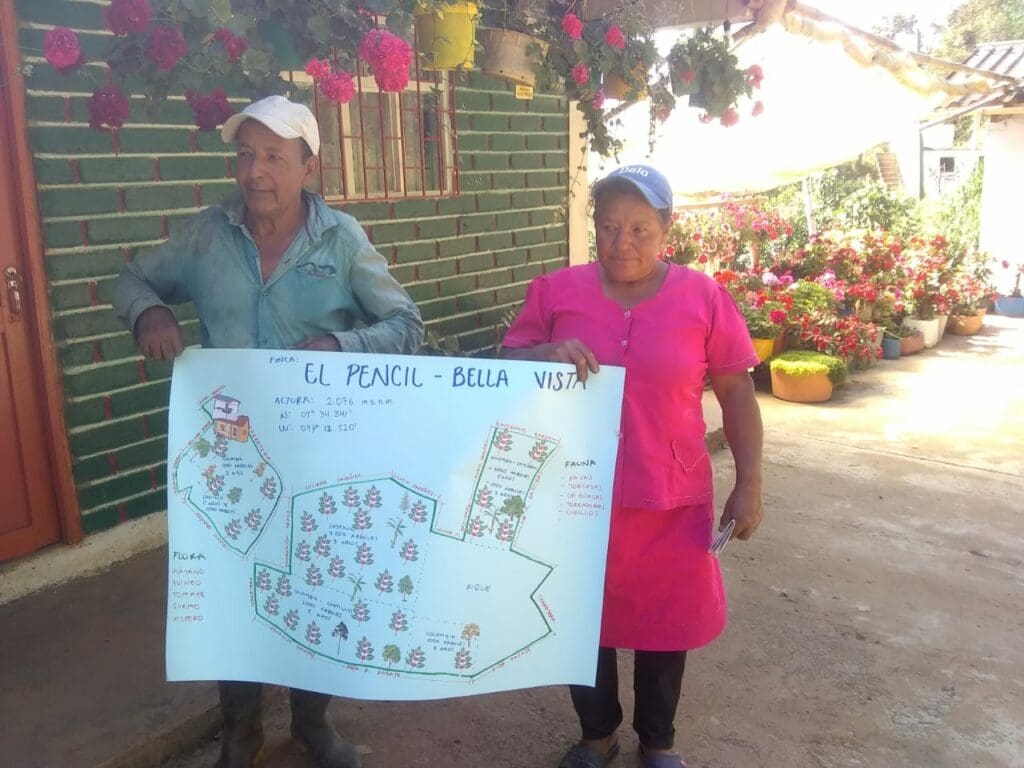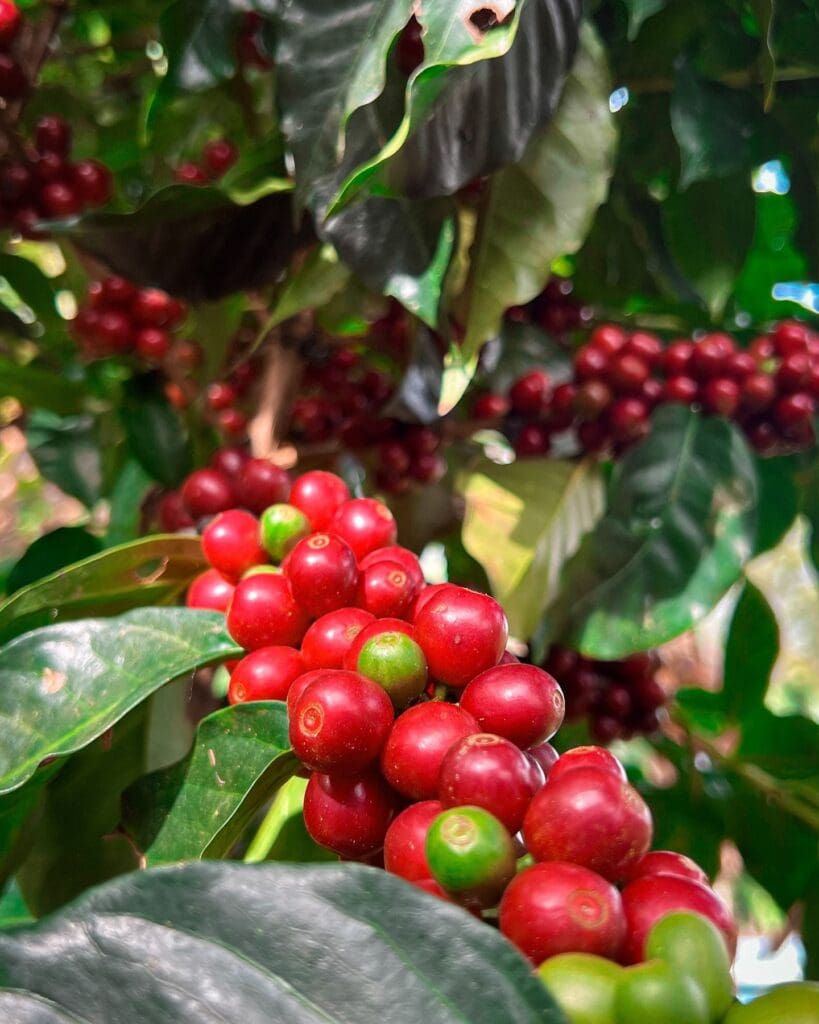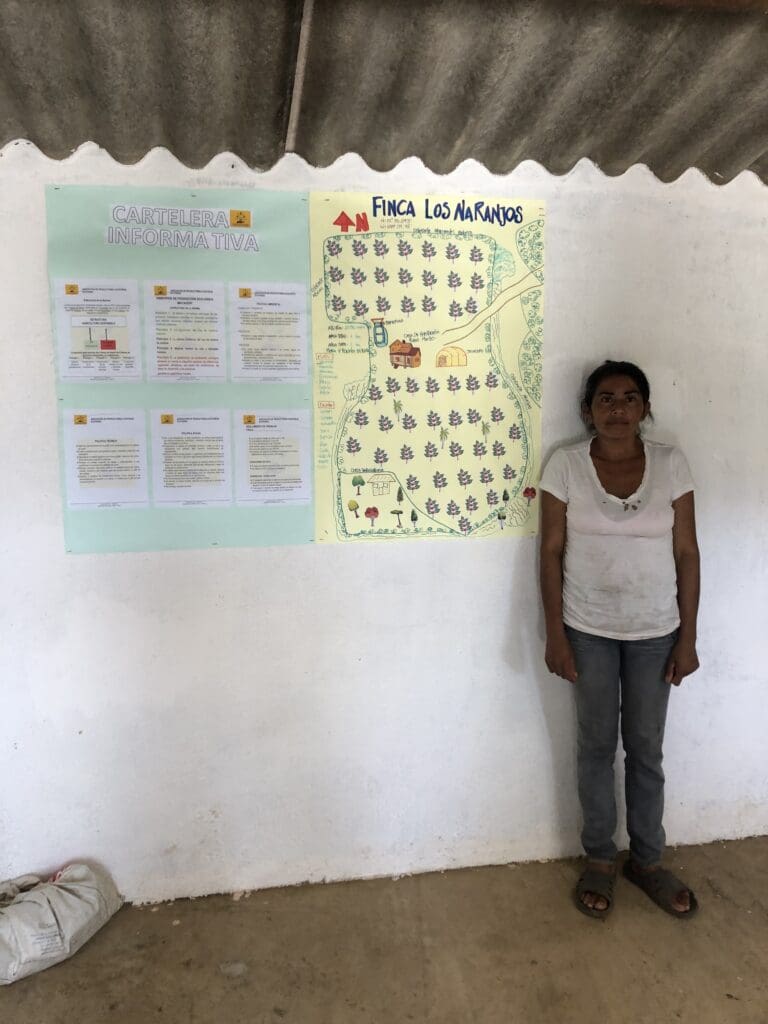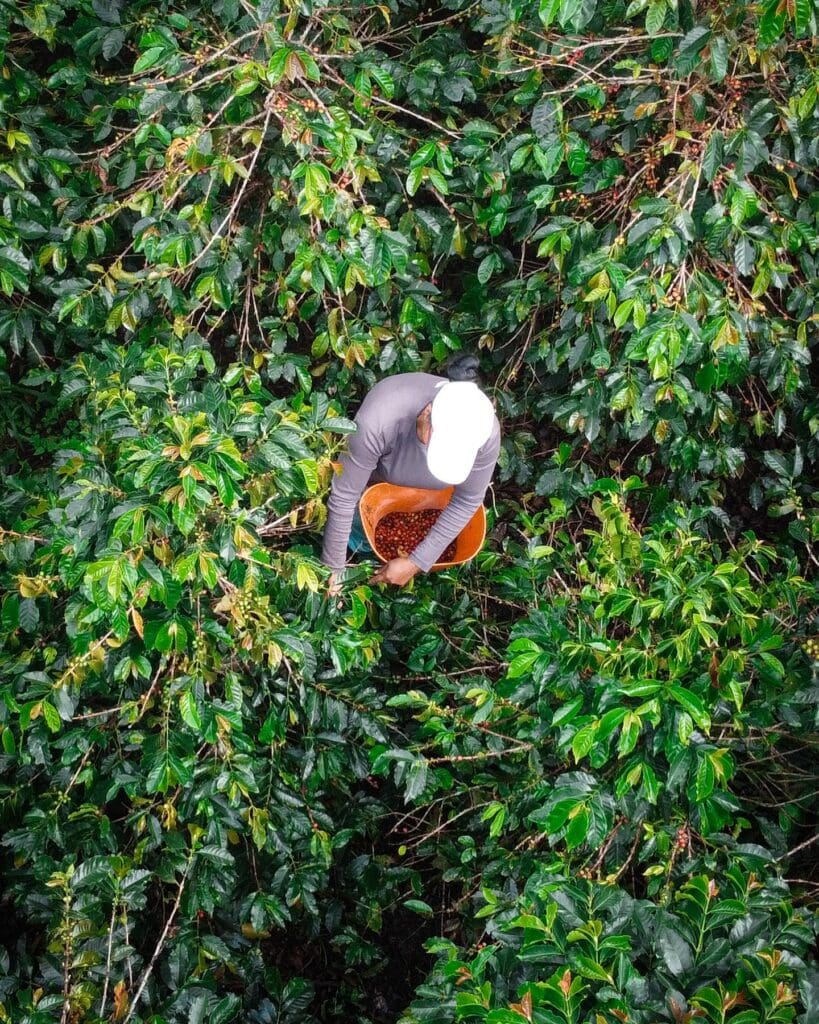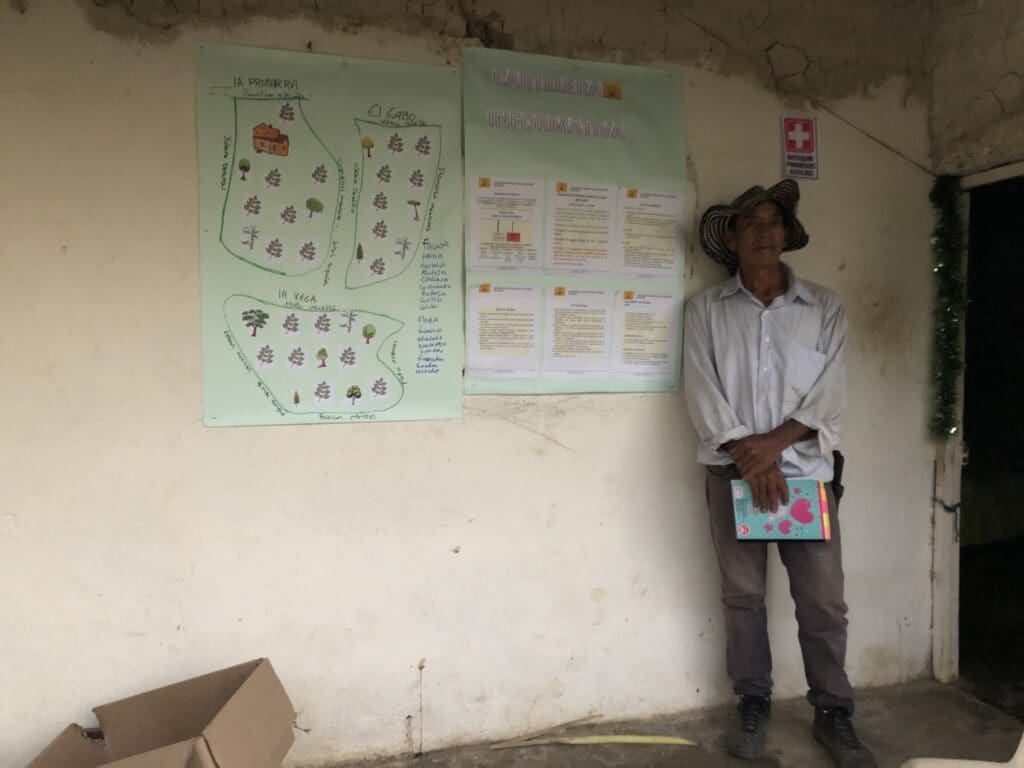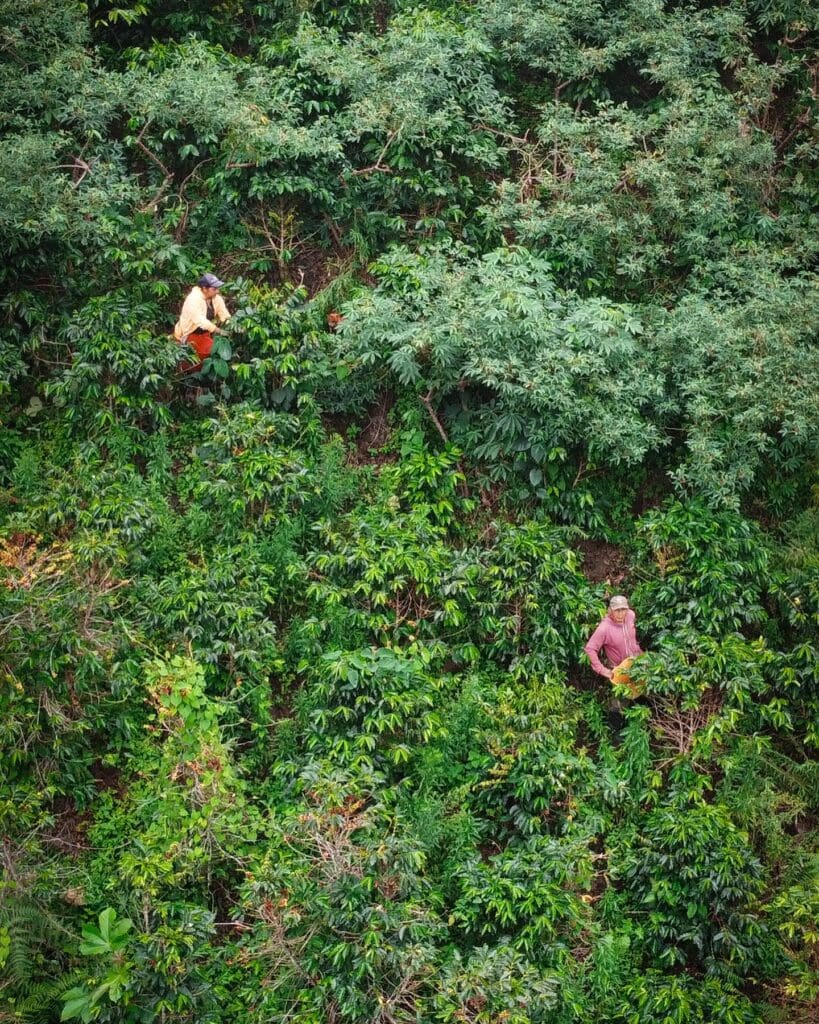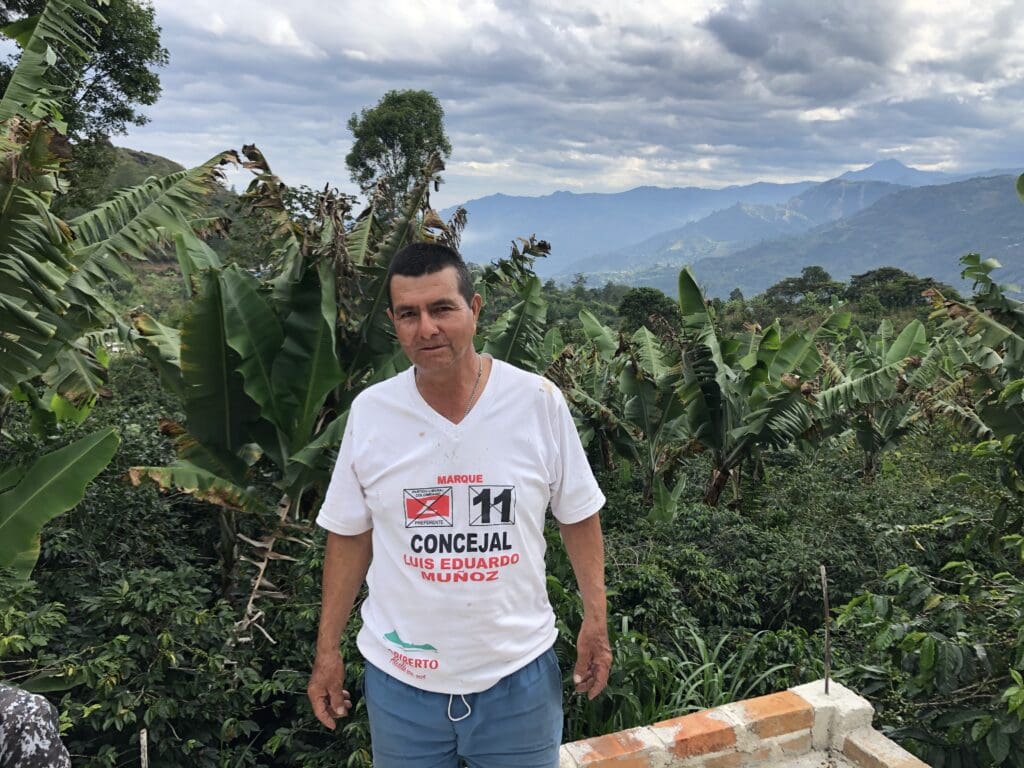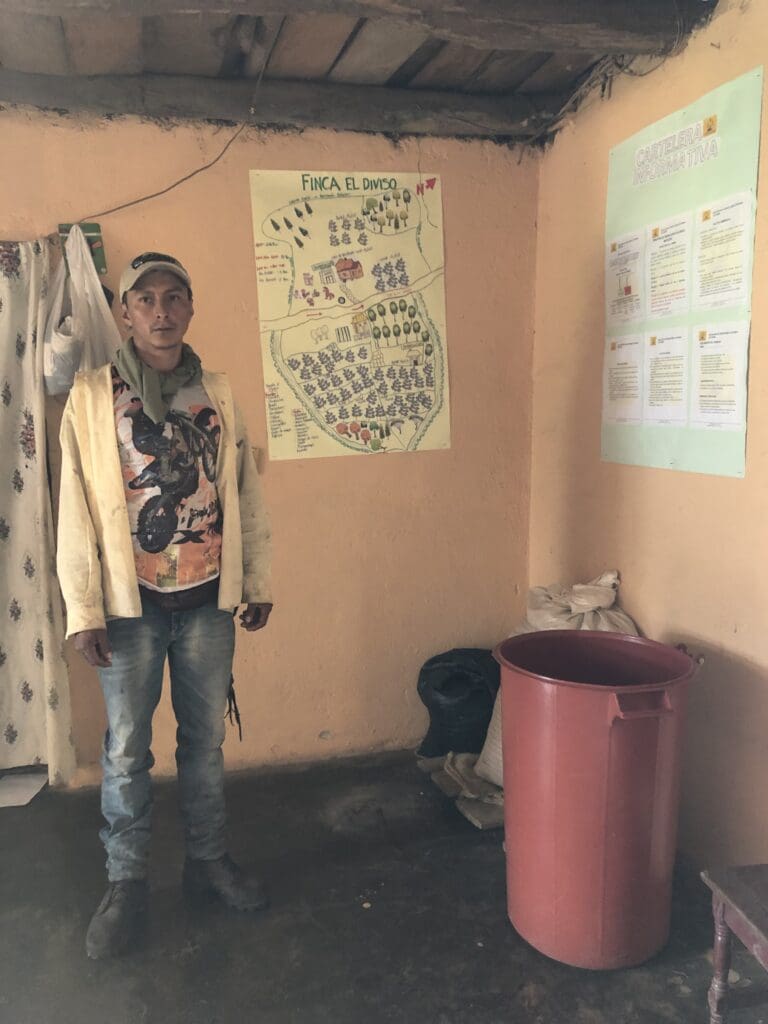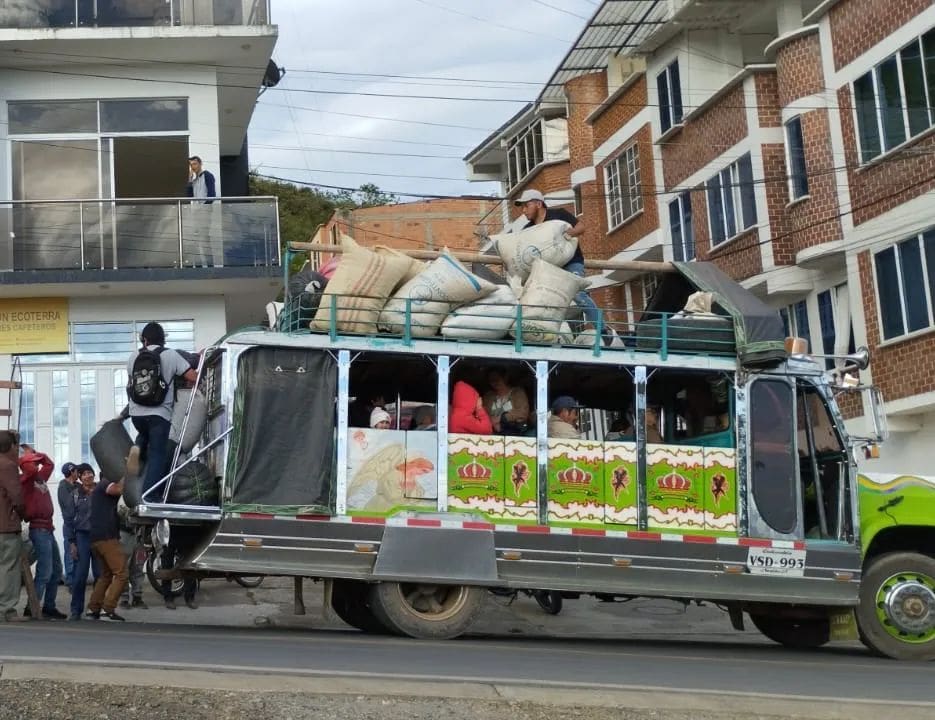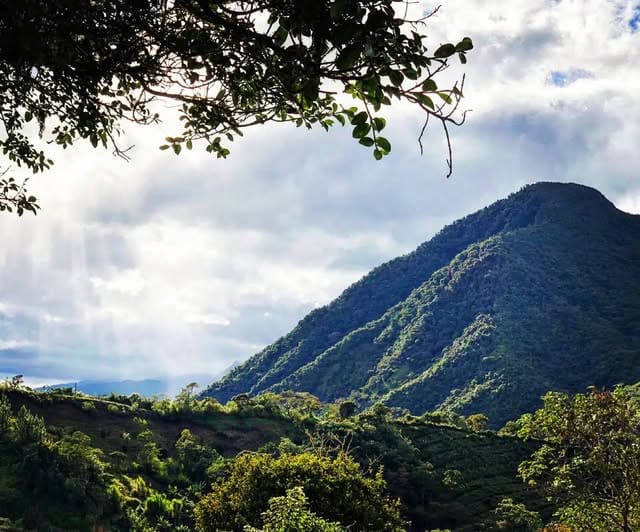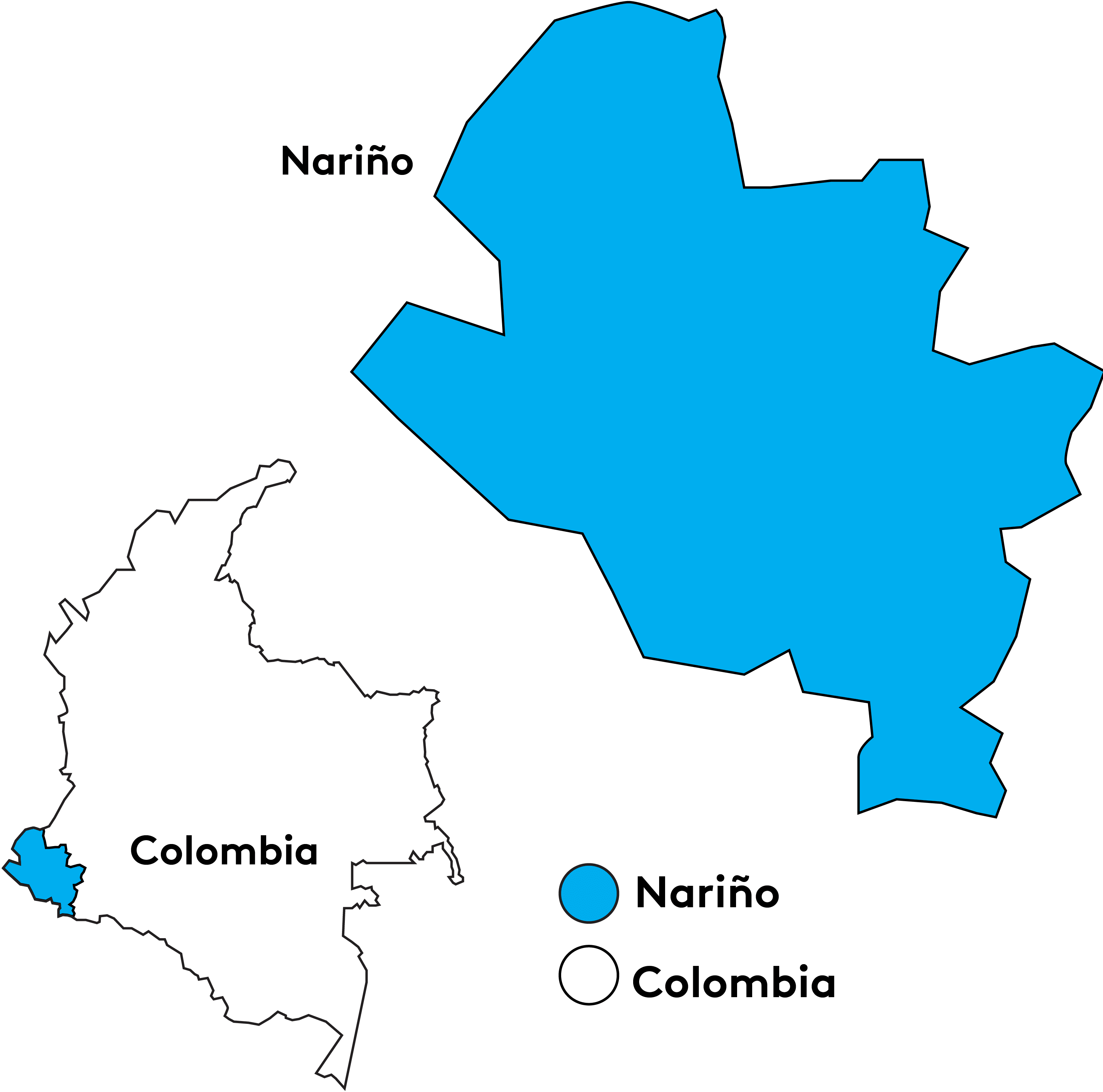In the department of Nariño, Colombia, La Jacoba (Ecoterra Nariño Association) brings together around 100–117 coffee-producing families. Each family cultivates small plots averaging just 1–2 hectares, spread across municipalities such as La Unión, San Lorenzo, Arboleda, San Pedro de Cartago, and Colón/Génova. What unites them is a shared commitment to growing organic coffee and to strengthening their communities.
The project was born to expand Colombia’s supply of certified Organic coffee while creating lasting environmental, social, and economic impact. Members receive premiums for their certified lots, participate in reforestation efforts, and benefit from training in sustainable farming practices. Investments also support infrastructure improvements—both in coffee production and in housing for families—ensuring that progress is felt across the community.
Coffee from La Jacoba is processed using the traditional Washed method. Freshly harvested cherries are depulped and undergo controlled fermentation in tanks (around 36 hours depending on the lot). Multiple washings remove the remaining mucilage, and drying takes place in protected structures—marquesinas or parabolic solar dryers—for 12–16 days until the coffee reaches 11.5% humidity.
The regional lots contributing to La Jacoba are planted with classic Colombian varieties such as Caturra, Colombia, and Castillo, grown at altitudes between 1,500 and 2,100 meters above sea level. These elevations, combined with the volcanic soils of Nariño, shape a cup with bright acidity and layered complexity, often revealing notes of red fruits, citrus, caramel, and nut.
